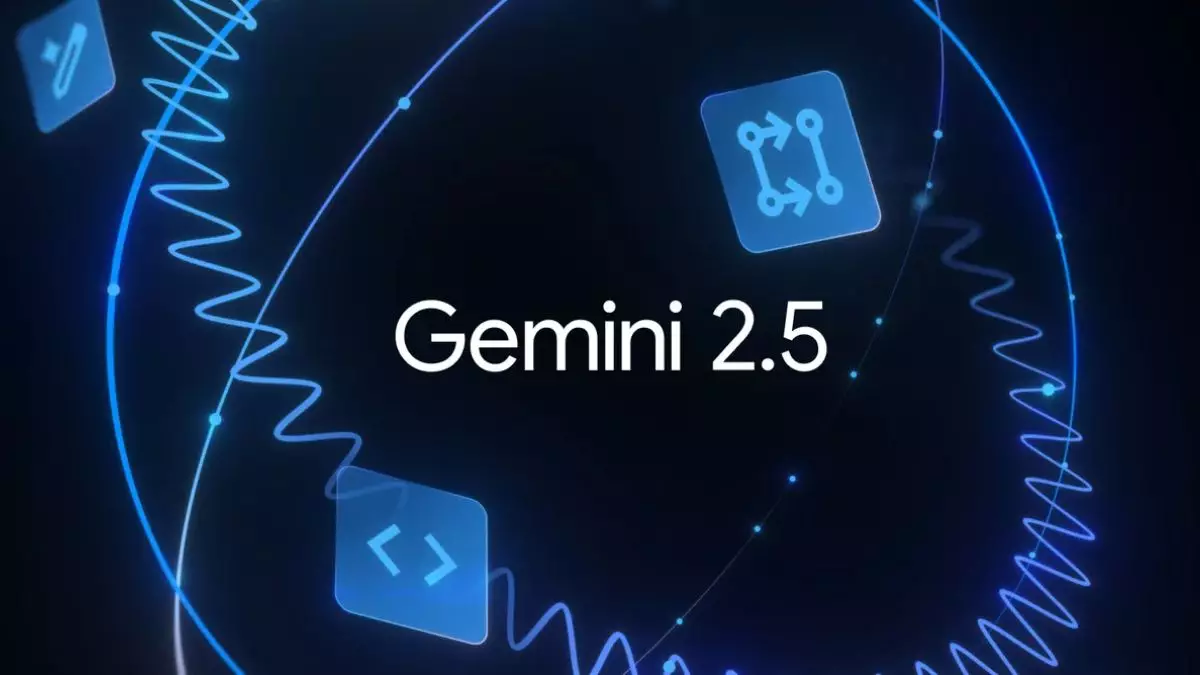On Tuesday, Google unveiled its highly anticipated Gemini 2.5 family of artificial intelligence (AI) models, making them generally available to the public. Among the most noteworthy offerings are the Gemini 2.5 Pro and Gemini 2.5 Flash models, which have transitioned from their previous preview phases to stable versions. This milestone is touted as a leap forward in user-friendly AI applications. However, one must pause to consider: is this truly a revolution in technology, or merely a polished update masquerading as innovation?
Accessibility vs. Quality: A Double-Edged Sword
The decision to offer the Gemini 2.5 Pro model to free users is commendable, as it democratizes access to advanced AI capabilities. Yet, this generosity does come with caveats—the daily usage limitations imposed on free-tier users create a two-tier system where the elite can push the boundaries while the everyday user is left on a leash. This disparity raises questions about whether Google is genuinely invested in equitable technological advancement or simply leveraging this model to expand its market share and user base.
Let’s unpack the mechanics. Pro users enjoy an impressive 100 daily prompts, while Ultra users can tap into even greater capabilities. In contrast, the free users operate under a strict quota, nipping at the heels of their premium counterparts. Shouldn’t cutting-edge technology be accessible to all, especially when it’s being heralded as a boon to everyday productivity? By adopting this structure, Google risks alienating a significant portion of its demographic and inadvertently reinforcing existing socio-economic divides in technology access.
Performance: Is Faster Better?
With the introduction of the Gemini 2.5 Flash-Lite, advertised as Google’s “fastest and most cost-efficient” AI model, one could argue that speed is indeed an asset in achieving real-time applications such as translation and classification. Yet, speed without substance is merely a hollow promise. Despite the claim of higher performance compared to earlier versions, the real test lies in real-world applications. Fast processing should not come at the cost of accuracy, especially in areas like coding, mathematics, and reasoning—fields that demand precision and reliability.
A rush to market often leads to overlooked errors in functionality that can deter users from fully embracing a product. Google’s previous ventures into AI have demonstrated that while the tech giant excels in adopting cutting-edge methodologies, it is sometimes slow in addressing pressing user concerns that stem from glitches and inaccuracies. If Gemini 2.5 meets the same fate, its promise may dissolve like mist under the sun.
Ensuring User-Centric Innovation
By allowing users on the free tier to access a limited version of powerful AI tools, Google seems to be making an effort to engage with a broader audience. However, this initiative must be executed with a focus on user experience that doesn’t compromise the quality of interactions. The ability to utilize one’s Google Search history for personalized AI responses is a step towards user-centric innovation, yet it nudges us toward an uncomfortable reality where our digital footprints may be leveraged more for profit than for tailoring our experiences.
Moreover, integrating the Flash-Lite and Flash models into Google Search opens up exciting potentials, but it needs to be coupled with transparency regarding data usage and privacy rights. In a world increasingly fraught with concerns about data security, users must have confidence that their information is not being exploited under the guise of enhanced service.
The Road Ahead: Hype vs. Reality
As Google rolls out these new models, the tech community will inevitably scrutinize the company’s commitment to fostering a more inclusive and accurate AI ecosystem. It’s vital that users remain vigilant, holding Google accountable for delivering on its promises and challenging the narrative around AI advancements that prioritize speed over substance.
Ultimately, while the arrival of the Gemini 2.5 family heralds exciting possibilities, it serves as a reminder that true innovation lies not solely in technological advancements but in the ethical responsibility of tech giants to deliver accessible, dependable, and user-focused tools for everyone.

Leave a Reply